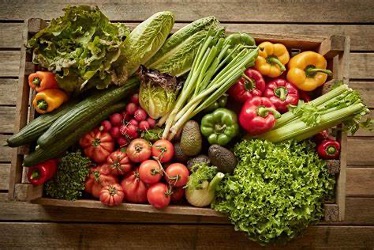Health and Sustainability
 In recent years, the demand for organic food has witnessed a remarkable surge, reflecting a growing awareness of the importance of what we put on our plates. Organic food isn’t just a trend; it’s a movement that transcends individual health benefits, reaching into the realms of environmental sustainability and ethical agriculture.
In recent years, the demand for organic food has witnessed a remarkable surge, reflecting a growing awareness of the importance of what we put on our plates. Organic food isn’t just a trend; it’s a movement that transcends individual health benefits, reaching into the realms of environmental sustainability and ethical agriculture.
One of the primary reasons people choose organic food is its nutritional superiority. Studies have shown that organic fruits, vegetables, and grains tend to have higher levels of essential vitamins, minerals, and antioxidants compared to conventionally grown counterparts.
Conventional farming relies heavily on synthetic chemicals such as pesticides and herbicides to control pests and weeds. These chemicals can leave residues on the produce and, when consumed, may have adverse effects on human health. Organic farming, on the other hand, prioritises natural methods of pest and weed control, reducing exposure to harmful chemicals and minimising the risk of pesticide-related health issues.
Organic farming practices are kinder to the planet. They promote soil health through crop rotation, composting, and reduced tillage, which helps maintain soil fertility and structure. Moreover, organic farming avoids the use of synthetic chemicals that can leach into water bodies, polluting aquatic ecosystems and harming biodiversity.
Organic farms also prioritise animal welfare. Livestock on organic farms are typically raised in more humane conditions, with access to outdoor areas, which not only benefits the animals but also produces healthier and more ethically sourced meat and dairy products.
Organic farming is often associated with greater biodiversity. By avoiding the use of synthetic pesticides and encouraging natural pest control methods, organic farms create a more favourable environment for beneficial insects, birds, and microorganisms. This diversity helps maintain the delicate balance of ecosystems, ensuring the long-term health of the land.
Organic farming often has strong ties to local communities. By purchasing organic products, you are more likely to support small-scale, local farmers who prioritise sustainable and ethical farming practices. This, in turn, helps strengthen local economies and fosters a sense of community.
The importance of organic food extends far beyond the dinner table. It is a holistic approach to food production that nurtures health, preserves the environment, and promotes ethical farming practices. By choosing organic, we not only benefit our own well-being but also contribute to a more sustainable and resilient food system for generations to come. So, the next time you shop for groceries, consider the far-reaching impact of your choices and the significance of supporting the organic revolution.

